- Home
- Gerald Hammond
Whose Dog Are You
Whose Dog Are You Read online
WHOSE DOG ARE YOU?
Gerald Hammond
© Gerald Hammond 1991
Gerald Hammond has asserted his rights under the Copyright, Design and Patents Act, 1988, to be identified as the author of this work.
First published in 1991 by Macmillan London Limited.
This edition published in 2019 by Endeavour Media Ltd.
Table of Contents
Chapter One
Chapter Two
Chapter Three
Chapter Four
Chapter Five
Chapter Six
Chapter Seven
Chapter Eight
Chapter Nine
Chapter Ten
I am his Highness’ dog at Kew;
Pray tell me, sir, whose dog are you?
On the Collar of a Dog which I gave to his Royal Highness.
Alexander Pope.
Chapter One
There are no prizes for guessing almost right. With a gale blasting out of the south-west I expected the geese to come low off the reserve and struggle upstream, to leave the river somewhere around the old tree stumps beyond the first bend; but in the colourless light of dawn they had come in a single skein, calling to each other as they fought the wind and passing well to our left and more than a gunshot high on their way to the feeding grounds.
Beth stirred beside me in the mud below the river bank. ‘Is that it?’ she asked hopefully.
‘Probably,’ I said. ‘But we’ll hang on a little longer.’
Beth subsided with an audible squelch and an equally audible sigh. She had insisted on coming with me as firmly as I had insisted on the expedition. I had missed most of the wildfowling season due to a recurrence of the illness which had ended my army career and nearly killed me. A very mild recurrence – the parasite had been identified and dealt with although the organic damage remained – but one conveniently (from Beth’s viewpoint) serious enough to restrict the outings which had always worried her, without much hampering my work in our joint business.
Now that I was back as near to perfect health as I dared hope for, I was determined to shake off the bonds of invalidism. One of my great pleasures had always been the foreshore at dawn, watching the water coming to life and waiting in the growing light in the hope that today, for once, I had got it right and that the geese would come over me within shot. The pursuit was all, the occasional shot was immaterial. Now, with the season about to close, it was go or wait seven months.
Honouring an old agreement, Beth made only slight objection. But knowing how vulnerable to the cold was my underweight frame and also fearing a return of my occasional blackouts, she determined to accompany me. To her surprise, I agreed. Not only did she have a point; I was confident that she would be oblivious to the magic of wildfowling and only too conscious of the discomforts, and would leave me to pursue that activity in cheerful solitude thereafter.
Daylight was almost complete. There were colours to be seen now, the muted colours of winter on the east coast of Scotland. It seemed that the last of the geese had passed. Any late-comers could be trusted to give vocal warning of their approach. I turned to face any duck which might be heading to roost after feeding overnight. Already the bottle-shapes of a few mallard had passed over, high and fast, and I had only recognised a merganser just in time to stop myself shooting a protected species. A merganser, seen head or tail on, can look very like a mallard.
‘The tide’s coming closer,’ Beth said.
‘You’ve got my waders on,’ I pointed out. ‘You won’t dissolve.’ It was against the hunter’s instinct to go home with clean barrels. But then I relented. ‘When it reaches us, we’ll go,’ I said.
A spring of a dozen or more teal came at me suddenly, downwind, fast and low. Rather than risk my heavy goose load reducing a bird to shreds of flesh and bloodstained feathers I turned round again and was just in time to drop a tail-ender in mid-river.
‘You can send Jason,’ I said. Jason is Beth’s personal Labrador and the only one of our many dogs privileged to risk his life in tidal waters. The others, all springer spaniels, were the breeding stock of a working kennels.
Beth gave the word and Jason went out, throwing up a bow-wave like that of a destroyer. I heard the deep grunt as he gathered his quarry. The little duck seemed lost in his big mouth. He surged back and presented Beth with a cock teal.
She thanked him politely, without enthusiasm. She loves to work Jason but she was obviously disappointed. ‘Is this all?’ she said. ‘It’s only a baby!’
‘It’s fully grown,’ I said. ‘It’s a small species but very tasty.’
‘Not much of a return for getting out of bed before the crack of dawn, driving umpteen miles, staggering more miles through a howling gale in the dark and then squishing around in the freezing mud.’
‘Good for the complexion,’ I said. ‘Keep telling yourself that it’s fun, fun, fun.’
Stung by the suggestion that her complexion could benefit from a mud pack, Beth would probably have made a hot retort. Instead, she uttered a scream which put up a pair of shelduck from under the far bank. I thought at first that she was giving vent to indignation until I saw in the strengthening light that her eyes were round and scared. I looked where she seemed to be looking.
Ten yards upstream of us, the body of a man was grounded face-down at the edge of the mud. Not much more showed than a hump of shoulder and the line of a leg but there was no doubting what it was. Below the water, lank hair of indeterminate colour floated as if raised in fear and the wavelets caused his hips to rise and fall in an obscene parody of the sexual act.
‘You’d better go to the phone,’ I said.
‘But—’
‘You wouldn’t rather stay here and watch him while I go?’
White-faced, Beth shook her head. ‘Couldn’t we both go?’
‘He might drift away again. The tide brought him up but the wind could take him down.’
I helped her to extricate herself from the mud and gave her the key of the car. ‘Go back to the bridge,’ I said. ‘I think there’s a phone-box somewhere. If not, knock on somebody’s door. Call the police and tell them that there’s a body. You can leave Jason with me,’ I added.
‘All right,’ Beth whispered.
‘You can manage?’
‘I’ll have to,’ she said bravely. She gave a little shiver and then surprised me by asking whether I was warm enough. Before we left the house, Beth had stood over me while I donned everything from thermal underwear to thick sweaters, so I was able to answer honestly that I was, if anything, too hot.
‘Well, stay warm,’ she said, ‘and don’t do anything silly.’
She took one more horrified glance at the object at the water’s edge and set off, the hood of her anorak flapping like a demented bird in the wind.
As she neared the bridge I would again be in her view. While she was out of sight I took the opportunity to examine the body. It had been in the water for some time. The River Eden and its estuary have bottoms mainly of mud and sand but there is enough stony ground to do a lot of damage to a body which is being carried up and down by the tide.
I had had enough to do with bodies during my army service to know not to move it by a limb. If the body had been a body for long enough, the limb could come away in your hand. Perhaps I was becoming soft in civilian life. Most of the clothes had suffered as much as the flesh. He had lost his boots and trouser-legs and yet, incongruously, a silver dog-whistle on a chain still hung around his neck. His waxed cotton coat was unzipped but had stood up to immersion and abrasion remarkably well. I took hold of the collar to move him.
When I was sure that the body was far enough on to the mud not to drift away again, I settled back under the b
ank. I thought that I would probably have an hour before the police arrived and there might still be another teal to add to the bag.
*
The police, as is their custom, showed far more consideration for the dead than for the living. They had taken an unconscionable time over arriving, taking possession of the body and obtaining a preliminary statement from me. And then, when I returned to the car in the pub car park, Beth had already warmed the engine in order to heat a towel – not for my benefit but in order to dry Jason.
It was mid-morning before we arrived home. Home is Three Oaks, a converted farmhouse set in the hilly farmland of northern Fife and a few acres of garden whose landscaping would look better for the absence of blocks of kennels, each with its outdoor run, and many, many dogs to tear up the grass and dig beneath the shrubs. Despite these handicaps Beth, with occasional help from me, usually managed to keep the place neat and even colourful.
Isobel, the third member of our partnership, was understandably fretful. (At any time during the previous few months she would have been furious at being left to manage the chores on her own, but with the ending of the field trials season we had entered one of the few comparatively leisurely periods of our year.) Isobel Kitts, plump and bespectacled and given to wearing woolly cardigans, could have been mistaken for any unobtrusive lady of late middle age but, when you looked into the depths of her character, highlights and shadows began to show. She had her faults, among them the habit of marking any high or low spot in her life by going on an alcoholic spree, but against that, as a qualified vet who always kept our stock in prime condition, a tireless worker and a natural-born handler of dogs under competition conditions, she was worth her weight in Supreme Dual Champions.
Beth broke in on Isobel’s mild reproaches. ‘Yes,’ she said. ‘But we found a body. A dead one. You couldn’t expect us to come rushing back here. I had to squelch back to Guardbridge and phone the police.’
‘You could have phoned me at the same time,’ Isobel pointed out.
‘John didn’t give me any money.’
Isobel helped herself to coffee. We were in the big kitchen of Three Oaks by then and Beth was conversing over her shoulder while whipping up a late but welcome breakfast. The dead body, it seemed, was of more interest than our thoughtless behaviour, because Isobel forbore from demolishing Beth’s excuses. ‘Whose body was it?’ she asked, pushing back the ungainly spectacles on her nose. ‘Anybody I’d know?’
‘I shouldn’t think so,’ I said. I had taken off my heavy coat and leggings, but the warmth of the kitchen was reminding me that I was still overdressed. I stripped off a sweater while I wondered how to phrase it. ‘He hadn’t been in the water for less than a week,’ I said at last. ‘And he’d taken quite a beating, being rolled around on the bottom. It could have been anybody.’
‘But male?’
‘From what I could see,’ I said. ‘It wasn’t my business to examine him. I expect the police will identify him from the list of permit-holders.’
Beth put a plate of eggs, bacon, sausages, tomatoes and mushrooms in front of me, with a piece of fried bread to keep it company and toast on the side. A rush of saliva prevented any further disclosures for the moment. Beth only tolerated my wildfowling trips because of their effect on my usually wayward appetite.
‘What makes you so sure that he was a wildfowler?’ Isobel asked. ‘He could have been an airman who walked over the edge of the Leuchars Airbase in the dark, or a golfer who couldn’t bear to live with his handicap another moment.’
Beth sat down more decorously with her own meal. ‘I only saw him for a few seconds,’ she said, ‘but I did see that he was wearing a cartridge belt.’
‘Ah!’ Isobel nodded and looked wise. ‘That would weigh him down. I expect that’s why he hadn’t been found sooner. All the same, he could have been brought down from further up the river.’
I had satisfied the first agonies of hunger. I emptied my mouth. ‘It gets pretty shallow before Dairsie,’ I said. ‘And the river was low today. Of course, it may have been higher when he fell in.’
I cleaned my plate in silence and began on the toast.
‘What sort of cartridges did he have in the belt?’ Beth asked suddenly.
‘They weren’t magnums,’ I said, ‘if that’s what you mean. But yes, I did take a look at one of them. Loaded with number three shot.’
‘Wildfowler!’ Beth said triumphantly. ‘Probably cut off by the tide. You read about them.’
I took off my second sweater and tossed it in the general direction of one of the fireside chairs. ‘I don’t think you’ve ever read about them on the Eden,’ I said. ‘It happens on the Wash or the Solway, places where you can go squishing out for miles over the mud and the gutters can fill behind you if you don’t have one eye on your watch and the other on the tide tables. Where we were, the river isn’t very wide. And most of the estuary’s flat.’
‘He could have got lost and walked in a circle,’ Isobel said.
‘He couldn’t get disoriented. He’d only have to keep heading away from the water. Anyway,’ I said, ‘you couldn’t get lost on the Eden mudflats even in a sudden fog. If you couldn’t see the lights of St Andrews, you’d have the noise of the traffic on the main road, the Tannoy at the paperworks at Guardbridge and a whole NATO airbase along the north shore. It’s the noisiest wildfowling ground I ever came across. I don’t know how the birds put up with it.’
‘Will we have to give evidence at an enquiry?’ Beth asked.
‘Unless he turns out to be a clear case of a heart attack there’ll probably be a fatal accident enquiry,’ I said. Inquests are not held in Scotland. ‘One of us will have to give evidence about finding the body. You can do it. You saw him first.’
Beth gave a little shiver. ‘I couldn’t,’ she said quickly. ‘You saw him only two seconds later. And you saw more of him. It’s odd that we haven’t heard anything about a missing wildfowler.’
‘It may have been some ass who came from miles away without telling anybody where he was going,’ I said. ‘They’ve probably been looking for him in all the wrong places. I suppose it’s even possible that the body was swept round from Tentsmuir.’
Beth shivered again. ‘I don’t think I want to talk about it any more,’ she said. ‘If you’ve finished, we’ve got pups to feed and young dogs to train.’
‘And I’ve got accounts to get out,’ Isobel added. ‘So clear the table before you go.’ The so-called office was totally cluttered with Isobel’s records so that our accounts were usually dealt with on the kitchen table.
The wind had eased or else we were more sheltered now that we were away from the coast. The day had turned mild for mid-February. I got rid of the thermal vest before starting work. And then it was back to the old routine. Feed and clean and teach. Wash the feeding dishes and start again. But the monotony was tolerable, even comforting.
I had had my moment of escape, pitting my wits and skill against the creatures of the wild. The fact that only one small teal had failed to outwit me did nothing to diminish the thrill of the hunt. And whatever sensation may be experienced after the finding of a dead body, it is never one of boredom.
*
Late the following day, a Friday, a uniformed sergeant from Cupar arrived at Three Oaks. I had met him before over the renewal of my shotgun certificate and Sergeant Ewell had struck me as both patient and also more knowledgeable about dogs and shooting than many of his kind. He had a thin face which looked ready to smile although I had never seen it do so and I thought that the grey in his hair was premature, probably from dealing with idiots like me. His uniform always looked spruce enough for duty outside a royal palace. His voice was soft although I thought that he could be a hard man with villains. I liked him without quite knowing why. Somewhere within our dealings lay the indefinable seed of friendship.
The Sergeant had brought a statement, embodying all that I had told his colleagues the previous day, for my signature; but when I had signed
it he was in no hurry to depart. He settled in one of the pair of soft chairs which occupy a corner of the big kitchen, accepted a mug of tea and prepared for a chat. Jason, who had taken an unaccustomed fancy to him, planted a broad head on the Sergeant’s knee. The Sergeant, who seemed to be at home with dogs, scratched him behind the ear in just the way that reduced Jason to a state of adoring imbecility.
I had noticed during our earlier encounters that the Sergeant always seemed ready for conversation. I had wondered whether this was his nature or a conscious ploy; and how much useful information he gathered over the innocent teacups. This time, however, I could see that he was thinking harder than our idle chatter warranted and I guessed that he was waiting for his chance to introduce some chosen topic. So when we had said what there was to say about the weather, the prospects for the local farmers and the traffic on the main road, I asked him, ‘Have they found out who the man is yet?’
He brightened. ‘Not to my knowledge,’ he said. ‘My brother-in-law’s in Kirkcaldy and he’s senior to me. He’s kept me posted. The last he told me, they were hoping that his fingerprints might be on record, or that the pathologist would come up with something useful – scars or diseases or unusual stomach contents.’
‘His fingertips were badly messed up,’ I said.
‘Aye. But the fingerprint patterns are repeated on the underskin, what they call the dermis. They got a few wee bits of prints, I’m told.’
Beth was away, fetching fresh supplies of kennel meal and dried meat and at the same time acclimatising some of the younger dogs to travel by car. But Isobel, who had taken the older dogs on a training walk, came in with some papers while the Sergeant was speaking and settled at the kitchen table. The Sergeant fell silent but Isobel laughed at him. ‘You can go on talking,’ she said. ‘I’m not squeamish. And I’m not a gossip.’
‘Both quite true,’ I said. ‘Didn’t they get anything from the man’s pockets?’

 Home to Roost
Home to Roost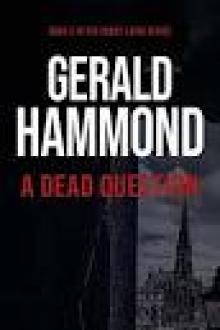 A Dead Question
A Dead Question Twice Bitten
Twice Bitten The Curse of the Cockers
The Curse of the Cockers In Loving Memory
In Loving Memory Illegal Tender (Three Oaks Book 12)
Illegal Tender (Three Oaks Book 12) Cold Relations (Honey Laird Book 1)
Cold Relations (Honey Laird Book 1)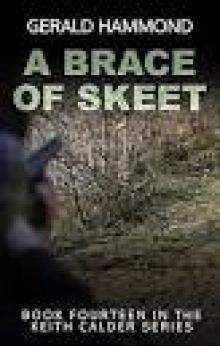 A Brace of Skeet
A Brace of Skeet Silver City Scandal
Silver City Scandal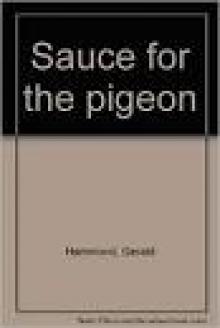 Sauce For the Pigeon
Sauce For the Pigeon Cold Relations
Cold Relations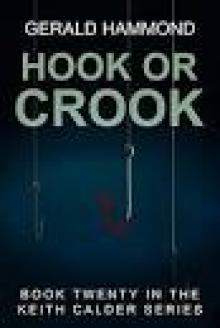 Hook or Crook
Hook or Crook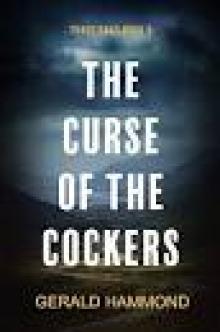 The Curse of the Cockers (Three Oaks Book 5)
The Curse of the Cockers (Three Oaks Book 5)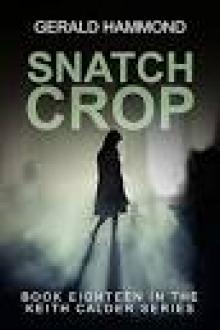 Snatch Crop
Snatch Crop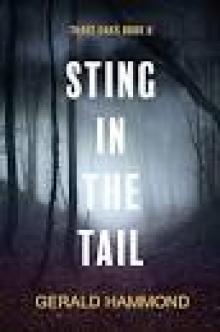 Sting in the Tail (Three Oaks Book 6)
Sting in the Tail (Three Oaks Book 6)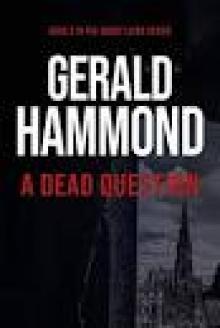 A Dead Question (Honey Laird Book 2)
A Dead Question (Honey Laird Book 2)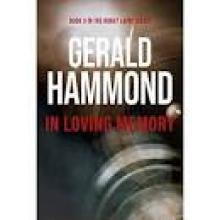 In Loving Memory (Honey Laird Book 3)
In Loving Memory (Honey Laird Book 3) Thin Air
Thin Air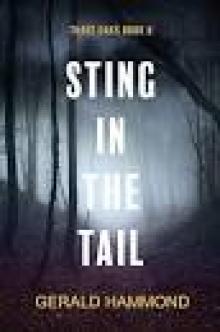 Sting in the Tail
Sting in the Tail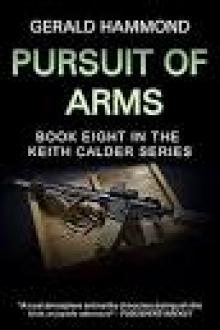 Pursuit of Arms
Pursuit of Arms The Game
The Game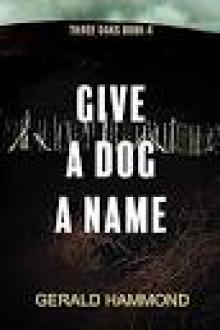 Give a Dog a Name (Three Oaks Book 4)
Give a Dog a Name (Three Oaks Book 4) Fair Game
Fair Game The Executor (Keith Calder Book 10)
The Executor (Keith Calder Book 10)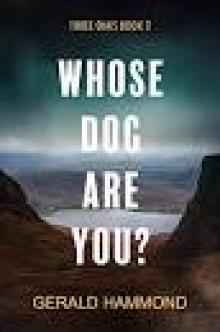 Whose Dog Are You? (Three Oaks Book 2)
Whose Dog Are You? (Three Oaks Book 2)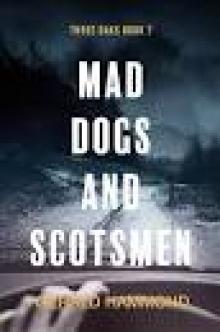 Mad Dogs and Scotsmen (Three Oaks Book 7)
Mad Dogs and Scotsmen (Three Oaks Book 7) Cousin Once Removed
Cousin Once Removed The Worried Widow
The Worried Widow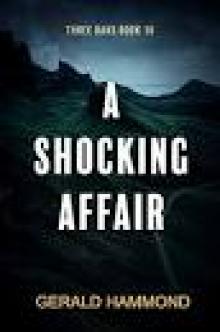 A Shocking Affair
A Shocking Affair Dead Weight (Three Oaks Book 11)
Dead Weight (Three Oaks Book 11)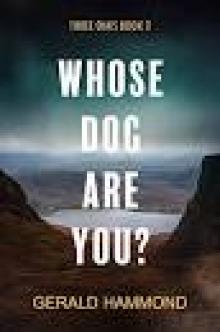 Whose Dog Are You
Whose Dog Are You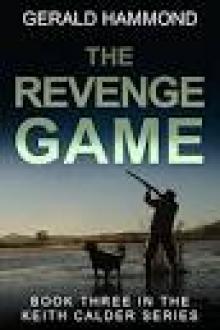 The Revenge Game
The Revenge Game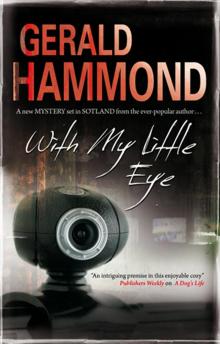 With My Little Eye
With My Little Eye Doghouse (Three Oaks Book 3)
Doghouse (Three Oaks Book 3)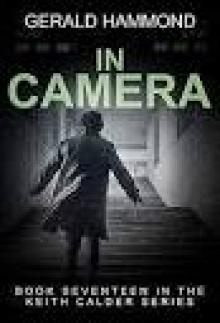 In Camera
In Camera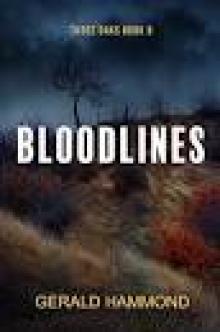 Bloodlines (Three Oaks Book 8)
Bloodlines (Three Oaks Book 8)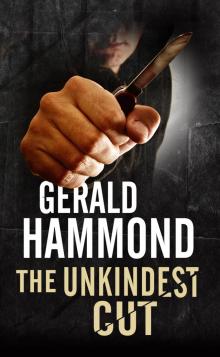 The Unkindest Cut
The Unkindest Cut